Gary Taylor's Influence Lives On At Rider
Gary Taylor's Influence Lives On At Rider
Gary Taylor racked up 442 dual wins during his 39 seasons at Rider and the school still feels his incredible impact more than two months after his passing.
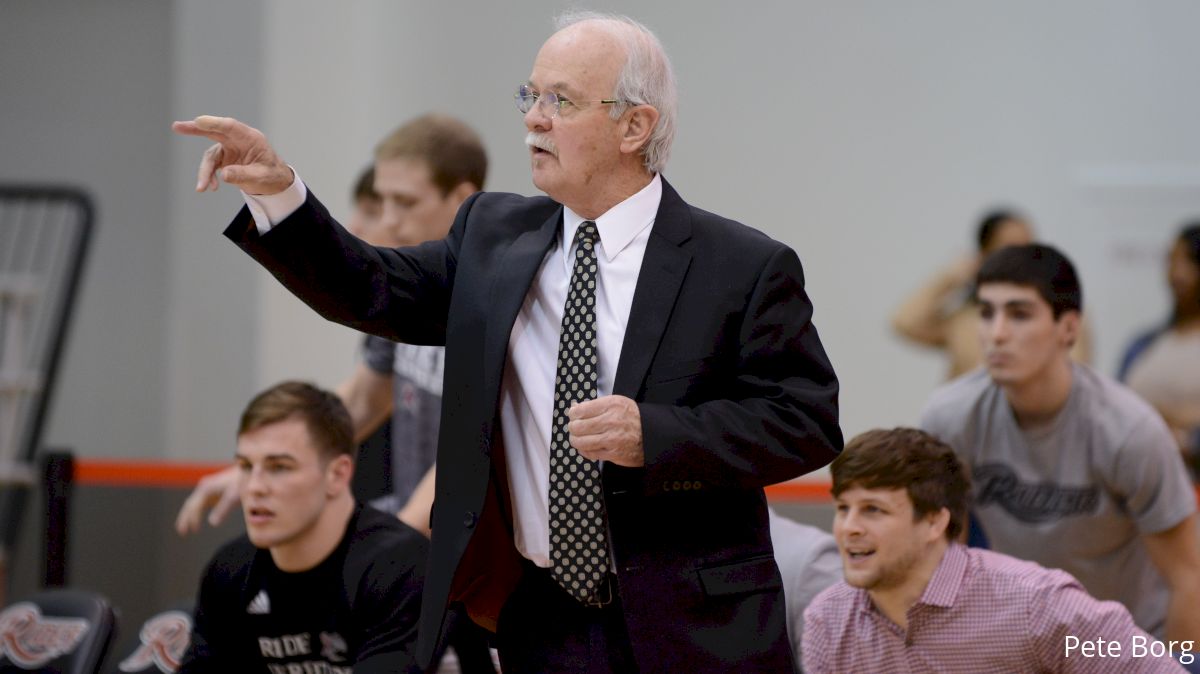
The Rider wrestling team is gearing up this week for its home opener Friday night against top-ranked Penn State. It’s the kind of Herculean challenge that Gary Taylor, the longtime leader of the Brocs, used to embrace.
Taylor, who passed away suddenly on Sept. 14, served as the Rider head coach for 39 years before retiring in 2017 and handing the reigns over to one of his former wrestlers and eventual associate assistant coach, John Hangey.
After Taylor’s passing, members of the wrestling community acknowledged his legacy and mourned this devastating loss. The school held its own memorial service for Taylor on October 27.
Former All-American Tim Morrison (Class of’83), who wrestled under Taylor, made a $500,000 donation to the school in his former coach’s name. His three sons wrestled for Taylor, as well. Rider will be using the donation to fund a new wrestling facility that will be named after coach Taylor.
The Legacy
When Gary Taylor took the helm at Rider at the start of the 1978-79 season, at just 27 years old, it was just the program’s 10th season in Division I. The little school of 3,600 students in Lawrenceville, New Jersey, was hardly acknowledged amongst its other Division I opponents.
Calling it an uphill battle almost doesn’t feel like enough. There were times back before the internet when Taylor would call recruits and their response might as well have been: “Where?”
Where, however, was smack dab in the heart of New Jersey wrestling country, and just across the river from Pennsylvania where Taylor had deep roots. There was plenty of opportunity when it came to things like recruiting, and an opportunity was all Taylor would need.
He set expectations for the program and for himself that to others seemed unattainable. When they said it couldn’t happen at Rider, he said ‘Watch me.’
“He had the ability to bring that out in people,” Hangey said.
Tim Morrison admits he had never heard of Rider before in his life. But all Morrison ever wanted was an opportunity to wrestle Division I. He was going to walk-on at Penn State with his brother. That was before they met Taylor.
He accepted an offer from Rider and went on to take fifth at the NCAA Championships in 1983. It was Rider, more specifically, coach Taylor, that gave him and other unknown wrestlers that opportunity when other schools didn’t.
In 2017, Taylor told FloWrestling, “You can’t think about what you don’t have. It’s a waste of energy, it’s a waste of time. There are people lining up telling you, you can’t do this, you can’t do that…but you’ve got to believe at a major, major level.”
Taylor fundraised like a madman because that’s what the job required. He believed in what his Rider program could become.
He didn’t complain about what he didn’t have. Sure, it was tricky, but he’d find a way. After all, as his daughter, Danica, recalls him saying: “You do the hard work.”
Giving extra wasn’t a thing. Taylor did the hard work.
When Taylor needed a vehicle to travel around the country looking for recruits, he reached out to his loyal alumni network, guys like Morrison and his former Rider classmates. These guys knew what Taylor was up against, and they knew he was up for the challenge. Pretty soon, Taylor was leasing a spiffy new van to replace his old run-down ’68 Chevy.
Even if Rider wrestling didn’t have the resources, its head coach had the will.
Taylor landed his first wrestler on the All-American podium in 1980 — just two years after taking over as head coach — and led Rider to the program’s first conference title just a few years later in 1984.
Taylor carried with him a cool confidence, and it never wavered. His wrestlers followed in suit, even when stepping on the line against wrestlers from the likes of Penn State, Iowa, and the rest of the nation’s best.
“Inner arrogance” was an attitude his team brought to the mat. The David vs. Goliath mentality was something Taylor embraced.
“Have a chip on your shoulder and dare someone to knock it off,” was one of the classic Gary-isms, Hangey recalled.
Taylor clearly had a knack for identifying talent in those chip-on-your-shoulder-type guys. His track record proves it, with former All-Americans like Shawn Scannell, Don Fisch, Jesse Dellavecchia and Chad Walsh leaving a lot of NCAA coaches wishing they’d recruited them first.
“Diamond in the rough. That’s the kind of people that we get and that’s the kind of people Gary made good. It wasn’t just on the mat. How is he off the mat? How does he deal with wins and losses? How does he handle his parents?” Hangey said.
For 39 years, Taylor was steady and so was his team.
He formed a great coaching staff of people who believed in what he did. Creating a community, getting those people involved, and letting them do what they are good at was at the heart of the program Taylor built. Aside from teaching classes, Taylor worked on the university’s facilities management staff throughout the summer to help every aspect of Rider improve, not just its wrestling team.
The humble Taylor possessed a personality that was a perfect fit for the program.
He wasn’t interested in receiving the credit, even as the wins accumulated, and he quietly climbed the ranks of all-time NCAA coaches. Maybe it was because he was able to recognize that when you’re Rider, you’re not always going to get it.
Taylor ranks third on the NCAA coaching wins list with 442 dual victories.He coached 15 different Broncs to All-American honors. In 1997, little ol’ Rider climbed as high as #7 in the national rankings.
A man of many talents, he could play guitar without ever taking a lesson or reading music. Instead, he taught himself to play by ear. He wrote songs and even started a band with a few of his buddies during the COVID-19 shutdown when everyone had a little bit of free time. They, of course, couldn’t practice or record in person. So instead, each recorded their own parts separately and produced them together, making the most of what they had.
When he tried teaching Danica to play guitar when she was a child, she complained her hands were too small to navigate the chords. Unable to accept this, the next day, her dad came home with a “Mini Martin” (Little Martin), a little guitar with a skinnier neck, that would mean she’d no longer be able to use her small hands as an excuse not to play. As he always did, her dad found a way.
He was a loving and caring husband and father who worked tirelessly to provide for his family. He set goals and he believed he could achieve them, while inspiring others to do the same.
That cool confidence, compassion and relentless ambition was present in everything he did.
While many wrestling coaches are great speakers. Taylor was a great listener.
He had a certain knack for connecting with people. Many would say with everyone. Cultivating relationships and the ability to bring the best out of people was what brought the best out of him.
As Tim Morrison put it — “He shot from the hip and had good aim.”
It wasn’t just the wrestling community who were shaken by Taylor’s loss. When Danica went to banks and insurance companies to close accounts and take care of her father’s other personal matters, the tellers and agents were devastated to hear the news.
“He just really valued connecting with people,” Danica said.
As Danica was preparing her speech for the memorial service at Rider, several former athletes and students reached out with their own memories of her late father.
“He taught me to believe in myself in a way that changed everything for me. And not just me — he touched and changed so many lives for good,” one former athlete told her.
There was another who admitted he was going through a really difficult time in his first few years at school and it was coach Taylor who helped him through it. “He taught a class at Rider I was in in 1986. I was a shy college kid and your dad pulled me aside because he saw me at the matches and encouraged me when I really needed it.”
Even in the past few years, after retiring in 2017, Taylor remained close to the wrestling room and the university where his presence was always felt. And always will be.
Hangey mentioned, “that’s the part I miss most. When he’s just stopping by.”
In 2004, Taylor was presented the Rider Sesquicentennial Medal of Excellence, which recognizes the achievements that have gone above and beyond serving the Rider students. In 2010, he received the Frank N. Elliott Award for Extraordinary Service to the University.
He left a profound impact.
As one former athlete put it, “[coach Taylor] was one of those guys who didn’t demand respect…you just couldn’t help but respect him.
That was Gary Taylor.
Related Content
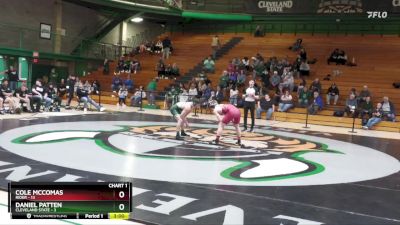 Replay: Rider, NJ @ Cleveland State, OH - 2024 Rider vs Cleveland St | Feb 23 @ 2 PM
Replay: Rider, NJ @ Cleveland State, OH - 2024 Rider vs Cleveland St | Feb 23 @ 2 PMFeb 23, 2024
 Replay: Rider vs Drexel | Feb 3 @ 2 PM
Replay: Rider vs Drexel | Feb 3 @ 2 PMFeb 3, 2024
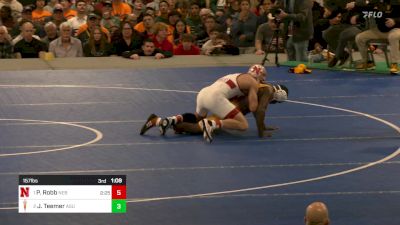 Replay: Finals - 2023 Cliff Keen Las Vegas Invitational | Dec 2 @ 3 PM
Replay: Finals - 2023 Cliff Keen Las Vegas Invitational | Dec 2 @ 3 PMDec 3, 2023
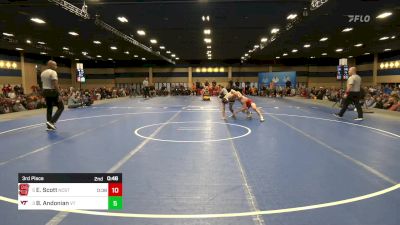 Replay: 3rd Place - 2023 Cliff Keen Las Vegas Invitational | Dec 2 @ 3 PM
Replay: 3rd Place - 2023 Cliff Keen Las Vegas Invitational | Dec 2 @ 3 PMDec 3, 2023
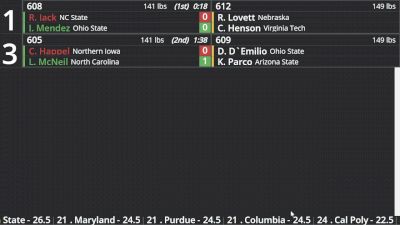 Replay: Bout Board - 2023 Cliff Keen Las Vegas Invitational | Dec 2 @ 3 PM
Replay: Bout Board - 2023 Cliff Keen Las Vegas Invitational | Dec 2 @ 3 PMDec 3, 2023
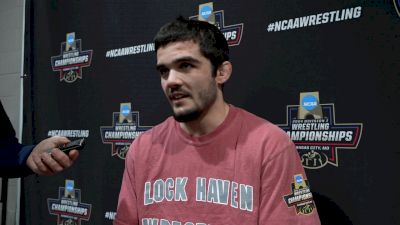 Anthony Noto After Coming Back For Third Place
Anthony Noto After Coming Back For Third PlaceMar 24, 2024
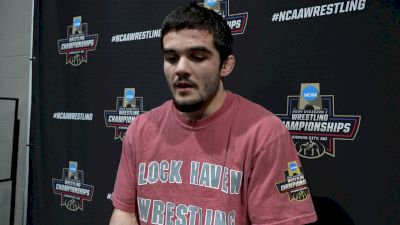 Anthony Noto Reflects On His NCAA Tournament Run For Lock Haven
Anthony Noto Reflects On His NCAA Tournament Run For Lock HavenMar 23, 2024
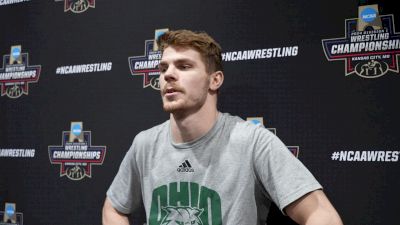 Peyten Kellar On His NCAA Tournament Run For The Ohio Bobcats
Peyten Kellar On His NCAA Tournament Run For The Ohio BobcatsMar 23, 2024
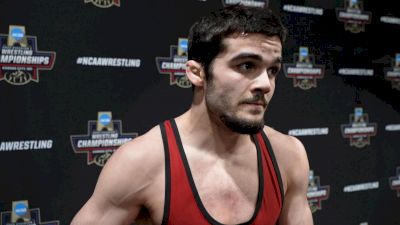 Anthony Noto Defeats Returning Finalist Matt Ramos
Anthony Noto Defeats Returning Finalist Matt RamosMar 22, 2024